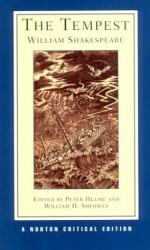|
This section contains 4,632 words (approx. 16 pages at 300 words per page) |

|
SOURCE: "The Tempest, or Repetition," in Mosaic: A Journal for the Comparative Study of Literature and Ideas, Vol. X, No. 3, Spring, 1976-1977, pp. 9-21.
In the following excerpt, originally the first part of a two-part essay, Kott argues that Shakespeare's reworking of classical mythology and Renaissance concepts of the New World, Utopia, and the Golden Age serves as a bitter commentary on "the lost hopes of the Renaissance."
Not only did explorers and colonizers give old world names to the lands they discovered and to their newly established colonies—New England, New Amsterdam, Jamestown, Virginia—but they also saw their very travels to the West, to uncharted territories with unknown flora, fauna and native inhabitants in terms of the myths of the Argonauts, sunken Atlantis and the Golden Age, the journeys of Odysseus and Aeneas. In the first engravings and paintings representing the new world, in, for instance...
|
This section contains 4,632 words (approx. 16 pages at 300 words per page) |

|


